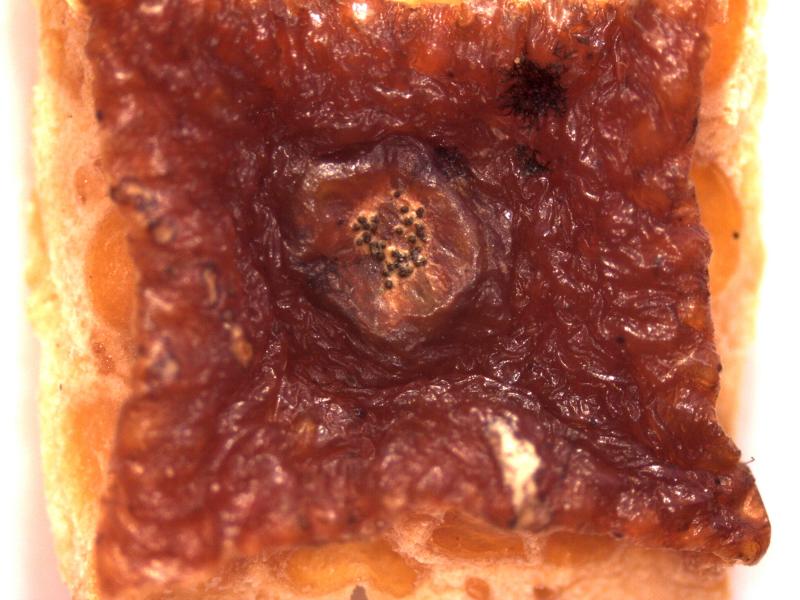PHILADELPHIA — The U.S. Department of Agriculture recently confirmed that the black lesions U.S. Customs and Border Protection’s agriculture specialists intercepted on an orange at Philadelphia International Airport was the highly destructive Citrus Black Spot disease.
According to the USDA, Citrus Black Spot is caused by the fungus Guignardia citricarpa Kiely, and is an economically significant exotic citrus disease that occurs in subtropical regions of the world. The fungus causes lesions that make the fruit unsuitable for the fresh fruit market and can cause extensive premature fruit drop that reduces yields of fruit for processing.
A CBP agriculture specialist discovered five black lesions on an orange that a man brought with him on a flight from Doha, Qatar July 16. CBP submitted specimens of the black lesions to a local USDA plant pathologist, and on Aug. 28, the USDA identified the lesions as the fungus that causes Citrus Black Spot.

U.S. Customs and Border Protection agriculture specialists intercepted the destructive Citrus Black Spot on an orange that a traveler brought from Qatar July 16, 2014.
The local USDA identifier initially suspected this to be a first Citrus Black Spot interception in Philadelphia; however, a more extensive review Monday of USDA’s national plant disease database reported a handful of interceptions prior to the 2003 creation of CBP.
“Citrus Black Spot is a significant interception for Customs and Border Protection as the disease is a top tier plant disease threat for U.S. crop industries,” said Susan Stranieri, CBP port director for the Area Port of Philadelphia. “Customs and Border Protection agriculture specialists take their mission to protect America’s agriculture very seriously."
Citrus Black Spot is present in parts of Florida, where 70 percent of our nation’s oranges are produced.
The Florida Department of Agriculture and Consumer Services reports first detecting Citrus Black Spot in Valencia sweet oranges near Immokalee, Fla., on March 8, 2010. This marks the first report of this fungal pathogen in North America, and constitutes a major jump in the geographical range of the pathogen.
For more information on Citrus Black Spot, please visit USDA's website and Florida's Citrus Health Response website.
CBP agriculture specialists have extensive training and experience in the biological sciences and agricultural inspection. On a typical day nationally, they inspect almost 1 million people as well as air and sea cargo imported to the United States and intercept 4,379 prohibited meat, plant materials or animal products, including 440 insect pests.
To learn more about CBP agriculture protection mission, please visit Protecting Agriculture on the CBP website.

